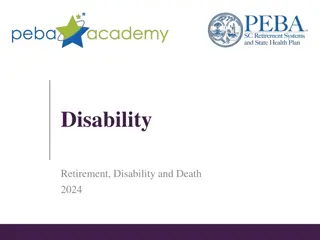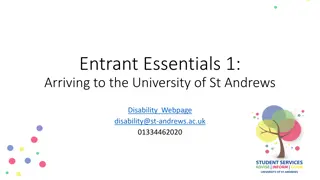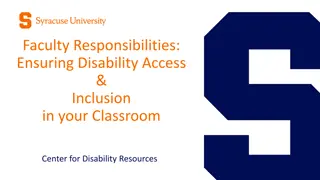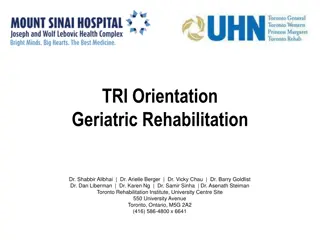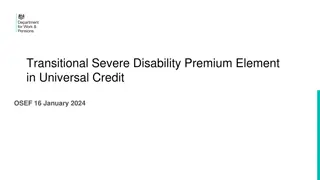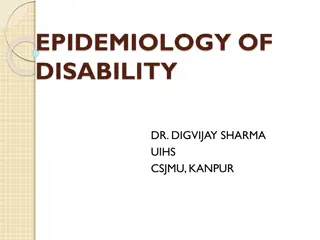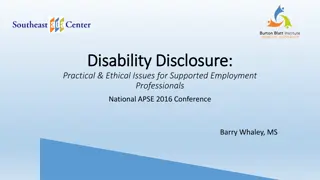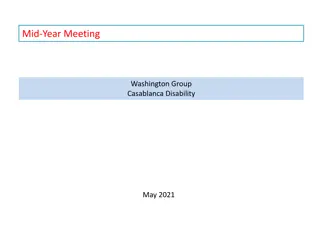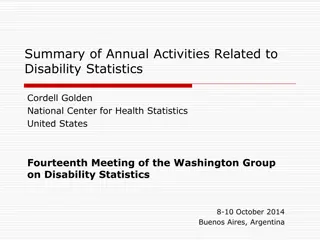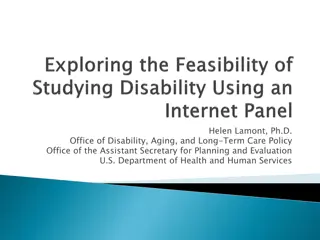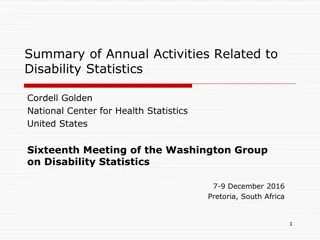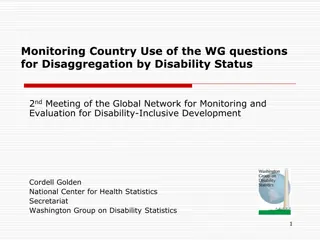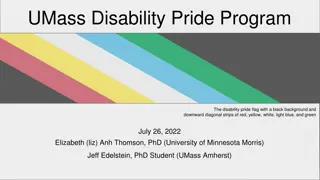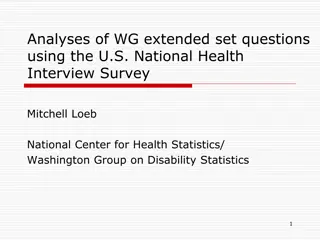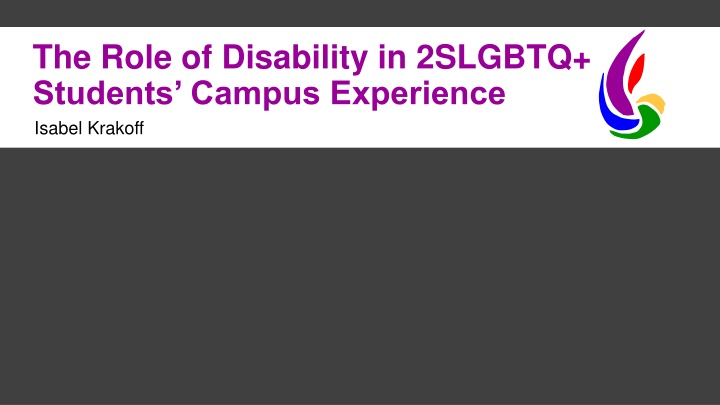
Exploring Disability Challenges in 2SLGBTQ+ Campus Experience
Understanding the impact of disability on 2SLGBTQ+ students' campus life, this study reveals that nearly 70% of surveyed students reported having disabilities affecting learning and interactions. Accommodation challenges, victimization experiences, and feelings of safety are highlighted, emphasizing the need for inclusive support services.
Download Presentation

Please find below an Image/Link to download the presentation.
The content on the website is provided AS IS for your information and personal use only. It may not be sold, licensed, or shared on other websites without obtaining consent from the author. If you encounter any issues during the download, it is possible that the publisher has removed the file from their server.
You are allowed to download the files provided on this website for personal or commercial use, subject to the condition that they are used lawfully. All files are the property of their respective owners.
The content on the website is provided AS IS for your information and personal use only. It may not be sold, licensed, or shared on other websites without obtaining consent from the author.
E N D
Presentation Transcript
The Role of Disability in 2SLGBTQ+ Students Campus Experience Isabel Krakoff
Disability and 2SLGBTQ+ Students Nearly 70% of 3865 2SLGBTQ+ students surveyed reported having a disability or condition affecting their learning, access on campus, and/or interactions with others 24% of students reporting a disability/condition identified as disabled Disability is an umbrella term including a wide array of lived experiences
Accommodations Challenges after access: Available accommodations do not meet students needs Some accommodations can contribute to financial strain Inadequate or poor implementation Experience barriers from instructors or university staff Limited options for complaints and/or mediation Access typically involves: Identifying as disabled Providing proof of disability Negotiating accommodations Challenges with access: Disability or condition not recognized by disability services Do not identify as disabled Do not have a doctor to provide necessary assessments or cannot afford the cost of assessment/notes Documents use deadnames Long waitlists to meet with disability services staff
Experiences of Victimization Disabled students were more likely to have experienced different kinds of victimization than students without reported disabilities or conditions Verbal Threats 2.5X Followed in a threatening way 5.7X Sexual harassment or assault 4.0X
Experiences of Victimization (cont) Considering the intersectionality of disabled students in terms of gender and race, disabled students were more likely to face victimization than peers without a disability/condition Gender Trans students: 4.0X Cisgender students: 2.9X Race BIPOC students: 3.7X White students: 3.2X
Perceptions of Safety In the survey, students reported the extent to which they felt safe on campus related to their trans identity and sexual identity. Across both of these indicators: Disabled students reported feeling more unsafe than peers without a disability/condition
Vignette Sam has had some supportive professors; however, the majority of their professors have not taken their accommodations seriously as one professor said to Sam, they just don t see them as disabled. Sam has had to drop more than one class due to lack of accommodations made by the professor, despite having a registered accommodation plan.
Belonging, Satisfaction, & Well-being Disabled students reported Decreased sense of belonging on campus This was especially true for disabled BIPOC students Less positive instructor relations Affecting their outcomes Lower academic satisfaction Greater levels of psychological distress Greater likelihood of having considered leaving their university This was especially true for BIPOC students The instant I handed them my accommodation papers, which means, you know, Hey, this person needs extra time on tests, and such and such, the rest of the year I was treated like a 5- year-old.
Interconnected Experiences Reported disabilities and/or conditions Feeling less safe on campus Lower sense of campus belonging Less support from instructors More negative academics & wellbeing outcomes
Recommendations Culturally responsive support services Centre intersections of disability, gender, and sexuality in policies/programs to ensure appropriate and responsive services Partner with students to identify future priorities Fostering equity and inclusion in the classroom Easily accessible information about accommodations for faculty and students Training and ongoing development in Universal Instructional Design Ensure faculty are equipped with knowledge and skills to support 2SLGBTQ+ students with disabilities Flexible documentation policies where there is a difference between chosen names and deadnames


